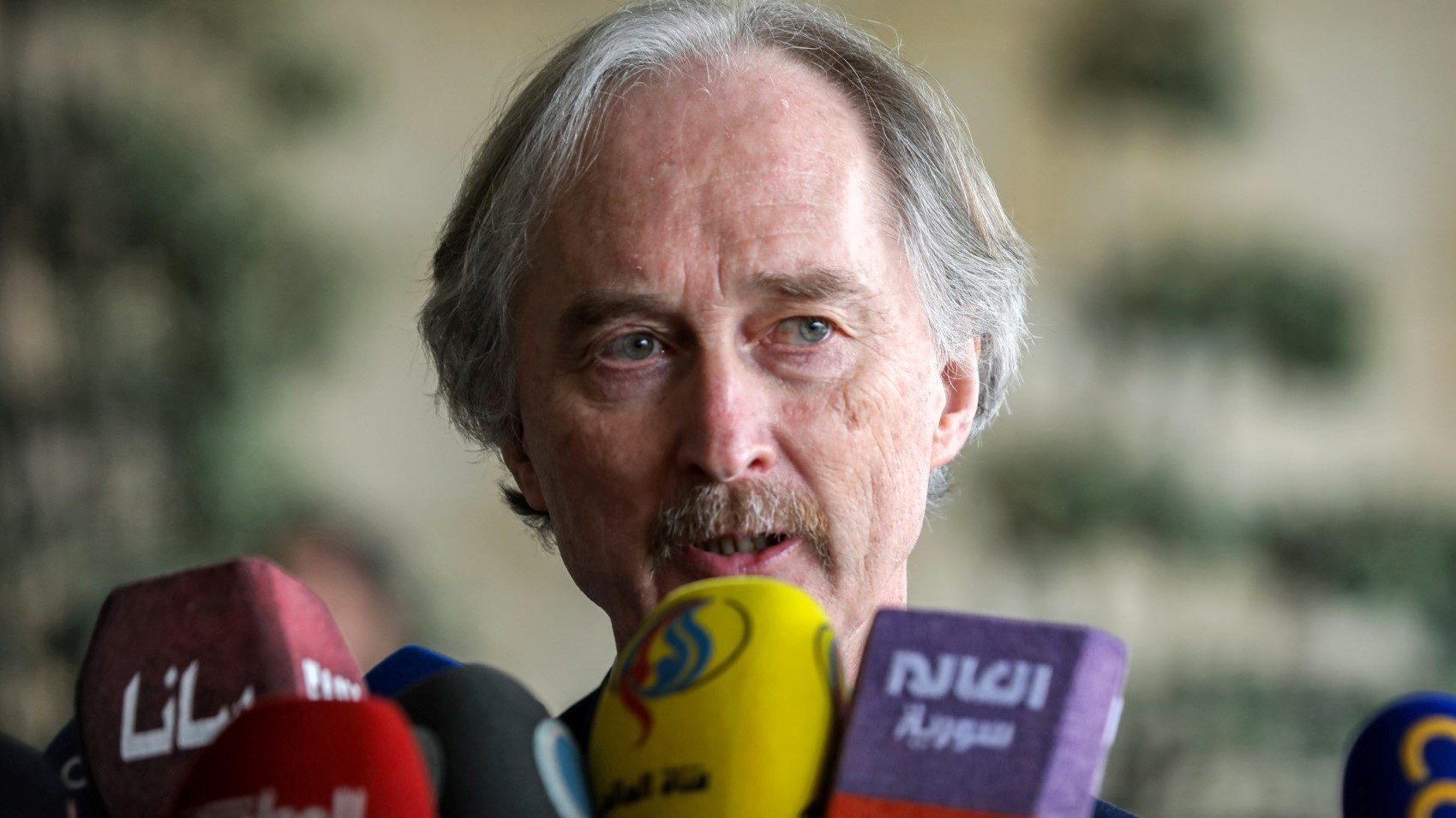For months, Pedersen has been trying to market a key idea—namely, that the demand for the Assad family’s departure from power in Syria must be overcome. Pedersen justifies his claim that Syrian voices have been failing to acknowledge the reality of pressures from Russia, Iran, and China, as well as the decline in both European and American interest in the Syrian issue. Yet Pedersen’s viewpoint deliberately ignores the nature of the Syrian conflict, which is essentially a conflict between a people and a corrupt junta—a fascist regime that has ruled for more than half a century. Pedersen is also deliberately ignoring the fact that any solution that keeps the former regime in place will once again plunge Syria into a spiral of violence, slamming shut all openings for any transition to a viable state, capable of development.
What does it mean that there will be no real political transition in Syria? And what does it mean for the Assad family to remain at the head of Syria’s ruling junta?
In trying to predict the outcome of Pedersen’s viewpoint, which he is trying to implement, the most likely—yet admittedly, not exclusive—possibilities become apparent. If there is no genuine political transition in Syria and the Assad family continues to rule, the country is doomed to remain a failed, helpless, and looted state, run by gangs and mafias with links abroad. What is most dangerous is that the nation more capable of running Syria will be Iran; Iraq offers an example of the consequences of such a development, for which we need only read what Iran has done in that country.
All the crimes committed against Syrians will go unpunished or lead to a show trial charade, in which some “hangers-on” pay for these crimes. All the while, the real criminals will remain in place to continue their illegal behavior. And, ultimately, the reality of brute force will remain dominant on the ground.
Read Also: Pedersen Carries Plan to Damascus, Rejected by Opposition
Gangs, mercenaries, and sectarian militias will dominate Syria for a long time, becoming the lead actors in the country. The Syrian state will become just a front for a many-sided mafia network.
The Syrians will once again wage war, and Syria will once more devolve into an armed conflict that will lead to Syria’s division. Such developments would amount to the desired outcome for several international parties, replacing the Arab-Israeli conflict with the Sunni-Shiite conflict. By casting the region’s people into a protracted conflict, they will miss the opportunity to develop into modern states; their potential will be drained, and they will become dependent on foreign actors.
It is very clear—and it does not take much effort for the Syrian people to realize—how Syria will look if the Assad family remains in power. They have half a century of evidence—numbers, data, and facts. All of these indications, without exception, say plainly that this family has worked for half a century to destroy and plunder Syria, corrupt the country, and reduce it to a failed state. The family was doing so when Syria was strong and capable, with a viable economy and army. Those same people will sell out Syria, at a public auction, after bringing the country to its current state of weakness.
The Syrian people have no other choice. Either there is a real political transition in which Syrians regain their national sovereignty and can rebuild their state; or they succumb to the continuation of their tragedy, as all prospects of rebuilding their homeland and state fade away. And any talk of a political transition that includes the gang led by Assad’s family has no value. It is nothing more than temporary anesthesia for the terrible pain that Syrians endure today.
If Pedersen dreams of adding another picture to his political record, this would go well with the circulated image of PLO Chairman Yasser Arafat shaking hands with Israeli Prime Minister Yitzhak Rabin on September 13, 1993, on the White House lawn—before the eyes of global public opinion. The price that the Syrian people paid—more than one million martyrs made of their most beautiful children—is worth far more than a commemorative picture. There are children without hope in Syria who simply want a safe future; and there is a homeland at stake, which is threatened by demise. These people want a homeland to take pride in. And there are millions of Syrians who want to leave their tents and return to their homes, even if they are destroyed.
Bassam al-Youssef is a Syrian opposition journalist.
This article was translated and edited by The Syrian Observer. The Syrian Observer has not verified the content of this story. Responsibility for the information and views set out in this article lies entirely with the author.


